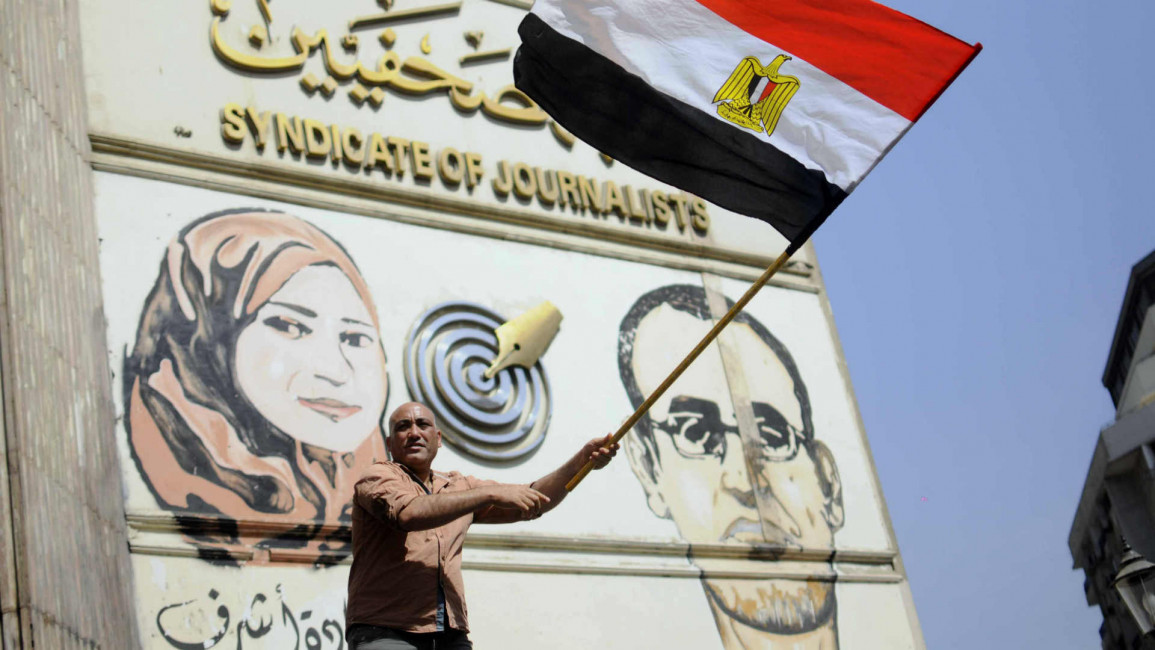Egypt's journalists demand release of controversial newspaper editor's son
Egyptian security forces stormed Shendi's house in a dawn raid on Tuesday in a bid to arrest Mr. Shendy who was not home at the time. Instead, they arrested his son Omar.
Magdy Shendi returned immediately and went to the Giza Security Directorate to hand himself in and demand his son's release, however he was told his son had been taken to the National Security headquarters in Sheikh Zayed. Authorities have not confirmed his whereabouts since.
The syndicate's Committee for Freedoms issued a statement rejecting the "dangerous precedent" set by the arrest of the accused's son.
It added that the authorities detained Omar for over 24 hours without notifying anyone he was in fact being held for 15 days, pending an investigation into the publication of "fake news".
The syndicate condemned the arrest of Magdy's son as "revenge", adding that Omar is a music student with no known political activity.
The syndicate said it totally rejected the storming of journalists' homes, intimidation and false accusation of their families.
Read more: In Egypt, the slow death of journalism continues
Although Shendi largely defends the Egyptian regime in his TV and media appearances, his newspaper has on occasion published more critical articles, which has reportedly angered authorities.
Some attributed the arrest to Al-Mashhad publishing a piece written by Hamdeen Sabahi, the only candidate who ran against Sisi in the 2014 presidential election.
In an article published on Tuesday, Sabahi criticised Egypt's Interior Minister Mahmoud Tawfiq for the state’s investigation into the "Amal Alliance", a group of leftist politicians it accuses of conspiring with the Muslim Brotherhood to bring down the government.
In 2018, the Egyptian parliament approved a law permitting authorities to monitor social media users with the aim of combatting "fake news".
Under the new law, people whose social media accounts have more than 5,000 followers could be placed under the supervision of Egypt's Supreme Council for Media Regulations.
Domestic and international human rights groups regularly criticise violations of freedom of expression by President Sisi's government.
More than 30 journalists are currently behind bars in Egypt, which ranks 161 out of 180 countries on the World Press Freedom Index compiled by Reporters Without Borders (RSF).
Sisi has overseen a severe crackdown on dissent since the military overthrow of Muslim Brotherhood-affiliated President Mohamad Morsi in 2013.
Human rights groups estimate that as many as 60,000 political prisoners languish in Egyptian jails, significantly more than under Hosni Mubarak's dictatorship.


![President Pezeshkian has denounced Israel's attacks on Lebanon [Getty]](/sites/default/files/styles/image_684x385/public/2173482924.jpeg?h=a5f2f23a&itok=q3evVtko)



 Follow the Middle East's top stories in English at The New Arab on Google News
Follow the Middle East's top stories in English at The New Arab on Google News


